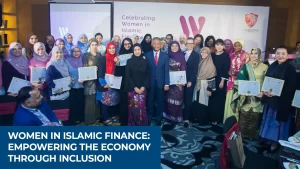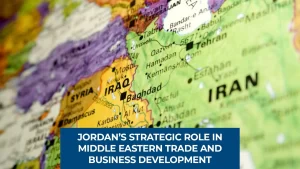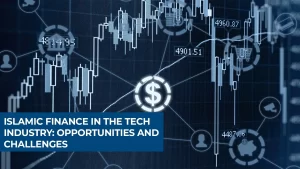Fintech has exerted a great impact on the conventional structure of the financial industry, including Islamic finance as well. In his book, Insuring Tomorrow: Exploring Takaful Insurance in Qatar’s Fintech Landscape Dr. Raed El Omari, a Jordan business leader, delves into these concepts to appeal to leaders to move swiftly to embrace the technological revolution in the Islamic finance industry.
Islamic finance is uniquely based on the principles of Islamic Sharia, which exclude interest, focus on risk-sharing, and non-ethical investment. For a long time, it has depended on close physical contact as well as the use of papers especially for business transactions. However, new advanced methods, including the block chain, AI, and mobile money, among other emerging Fintech, are changing these traditional practices. Dr. Raed El Omari said that adopting these technologies is not only a need but a way forward for Islamic finance to grow competitively in the future.
The construction of block chain provides a perfect platform because its ledger is transparent, secure, and unchangeable, which makes it possible to follow the Sharia regulations. Smart contracts can bring more efficiency to the implementation of the terms of Islamic financial products and eliminate the need for middlemen, as well as cut the risk of fraud and mistakes caused by people. This is why, as Raed El Omari pointed out, Jordanian business leaders are already looking at applying block chain to Sukuk and trade finance so that these sectors can benefit from smart technologies that will bring more efficiency and credibility into Islamic financial operations.
Artificial intelligence is another disruptive factor in this sector. Artificial intelligence is capable of generating big data bytes and generating real-time financial consultation and anti-fraud solutions. Dr. Raed El Omari argues that the integration of AI into Islamic financial services can guide and enhance the understanding of consumers, product creation, and legal compliance in a complaint with Shariah law practices. It allows Islamic banks to deliver superior and client-friendly services that would help to increase the number of people included in the banking system.
Mobile banking solutions and Fintech platforms are growing to provide people with more and more targeted financial products, especially in developing countries or countries where banking services are scarce. Specifically, Raed El Omari, an influential personality in Jordan’s business market, is optimistic about the opportunities offered by the active usage of mobile technology to target underserved populations. Offering the services of Islamic banking and finance acceptable in the mobile sector, banking institutions increase their market reach and drive the economic development of these nations.
Nevertheless, challenges must be also observed in integrating Fintech into the system of Islamic finance and banking. New dynamics of the financial sector have to be created and properly accredited to meet the circumstances of Fintech and remain admissible under Sharia law. According to Dr. Raed E. Omari, it is essential to receive help from experienced authorities, scholars, and industry professionals to establish effective standards that will enable constructive innovations while ensuring compliance with the appropriate ethical norms.
By evaluating the nature of Fintech disruption as transforming the financial industry, it can be concluded that it is a transformative disruption in the case of Islamic finance. Understanding these facts has a vivid explanation from Dr. Raed El Omari in which he supports the notion of Jordan’s business leaders and the global Islamic finance industry to accept technological changes. This, in turn, will foster technological advancement, improved access to financial services, and adherence to Islamic ethics within digital transformation strategies to make Islamic finance more effective and sustainable.






